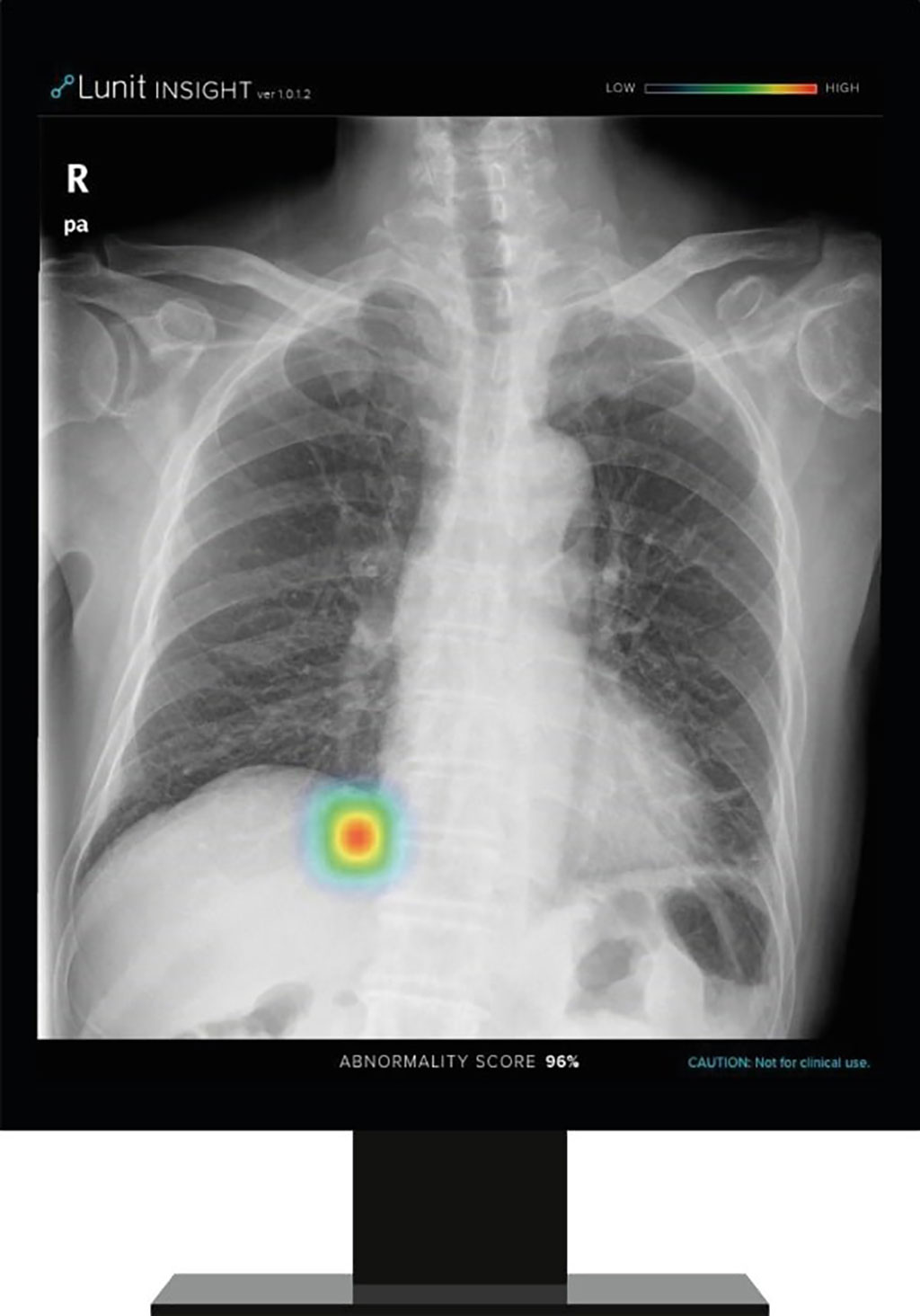New AI Software Accurately Detects Lung Cancers on X-Rays and Cuts Unnecessary Chest CT Scans by 30%
By MedImaging International staff writers
Posted on 06 Aug 2021
A recent study has shown that a deep learning-based artificial intelligence (AI) algorithm can improve the performance of readers in detecting lung cancers on chest radiographs.Posted on 06 Aug 2021
According to the second joint study conducted by Massachusetts General Hospital (Boston, MA, USA) and Lunit Inc. (Seoul, Korea), AI had 28% sensitivity benefit for radiology residents, helping them properly recommend CT exams for potential lung cancer patients, and 30% specificity benefit for radiologists in lung cancer detection, reducing unnecessary CT exams. The joint research team has previously focused on validating the accuracy of AI, and proved that Lunit INSIGHT CXR, an AI software for analyzing chest X-rays, can accurately detect malignant pulmonary nodules, which can cause lung cancer. In this consecutive study, the team focused on whether AI can affect the performance of medical professionals in finding lung cancers.

Illustration
For the study, 519 images of cancer-positive and cancer-negative patients were selected from the National Lung Screening Trial (NLST). Eight readers, including three radiology residents and five board-certified radiologists, participated in the reading. By comparing the analysis of the readers and Lunit INSIGHT CXR, the result showed that AI could lead to more efficient and precise diagnosis for both doctors and patients. With AI, radiology residents were able to recommend 28% more chest CT examinations for patients who may have potential risk of lung cancer. Also, radiologists recommended about 30% lesser proportion of unnecessary chest CT examinations in cancer-negative patients.
"The use of AI could help to detect pulmonary nodules accurately with chest X-rays, as well as reduce the need for unnecessary chest CT exams in some patients," said Mannudeep K. Kalra, MD, a radiologist at the MGH and Co-investigator on the study. "This finding can benefit patients by enabling them to avoid unneeded radiation exposure, and it can benefit the healthcare system by preventing certain medical costs."
"Chest X-ray is the firsthand diagnostic tool to detect lung cancer, but it has limitations as it is a compressed 2D rendering of 3D human structures," said Brandon Suh, CEO of Lunit. "An accurate analysis through Lunit INSIGHT CXR can help medical professionals provide diagnosis to patients with increased efficiency - preventing potential cancer at an early stage, while saving time and cost for those who do not need a further examination."
Related Links:
Massachusetts General Hospital
Lunit Inc.













